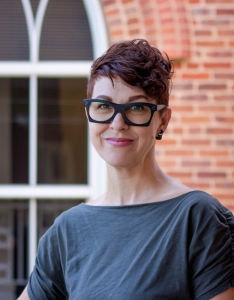
K. Merinda Simmons is Professor of Religious Studies at the University of Alabama. Some of her books include Race and New Modernisms (co-authored with James A. Crank, Bloomsbury, 2019), The Trouble with Post-Blackness (co-edited with Houston A. Baker, Jr., Columbia UP, 2015), and Changing the Subject: Writing Women across the African Diaspora (Ohio State UP, 2014). Her work has appeared in American Literature, Method and Theory in the Study of Religion, and Journal of the American Academy of Religion, and she is editor of the book series Concepts in the Study of Religion: Critical Primers (Equinox Publishing). Her current project incorporates archive theory, queer theory, and critical improvisation studies to examine the concept of slave religion.
K. Merinda Simmons nuances and furthers Jason Josephson Storm's episode from Season 11 by reflecting critically on the ways in which postmodernism is explicitly—or even implicitly—dismissed in religious studies scholarship.
Visit our archives to explore the insider/outsider problem in the study of religion. We explore questions such as "What is an 'insider' or 'outsider'?" and "How do scholars of religion study and engage 'insiders'?" to begin unpacking what all is at stake in this process of group formation.
For our final episode of Season 10, join Andie Alexander, Ishanika Sharma, and K. Merinda Simmons as they talk all things Critical Race Theory—or at least what can be covered in one episode!
We spend a lot of time on the Religious Studies Project discussing Religious Studies as a discipline or field of study, what it means to study 'religion' with or without quotation marks, and what exactly it is that the critical, scholarly study of societal discourses surrounding 'religion' might have to offer. However, ...
Identity or Identification? In this second podcast for Identities? Week, the Culture on the Edge group address the issue of religious identity. Is our identity – cultural, religious or other – something which causes us to act, or something which we choose to mobilise in certain circumstances? And what part do scholars have in reifying these discourses?
This work is licensed under a Creative Commons Attribution- NonCommercial- NoDerivs 3.0 Unported License.
The views expressed in podcasts, features and responses are the views of the individual contributors, and do not necessarily reflect the views of The Religious Studies Project or our sponsors. The Religious Studies Project is produced by the Religious Studies Project Association (SCIO), a Scottish Charitable Incorporated Organisation (charity number SC047750).